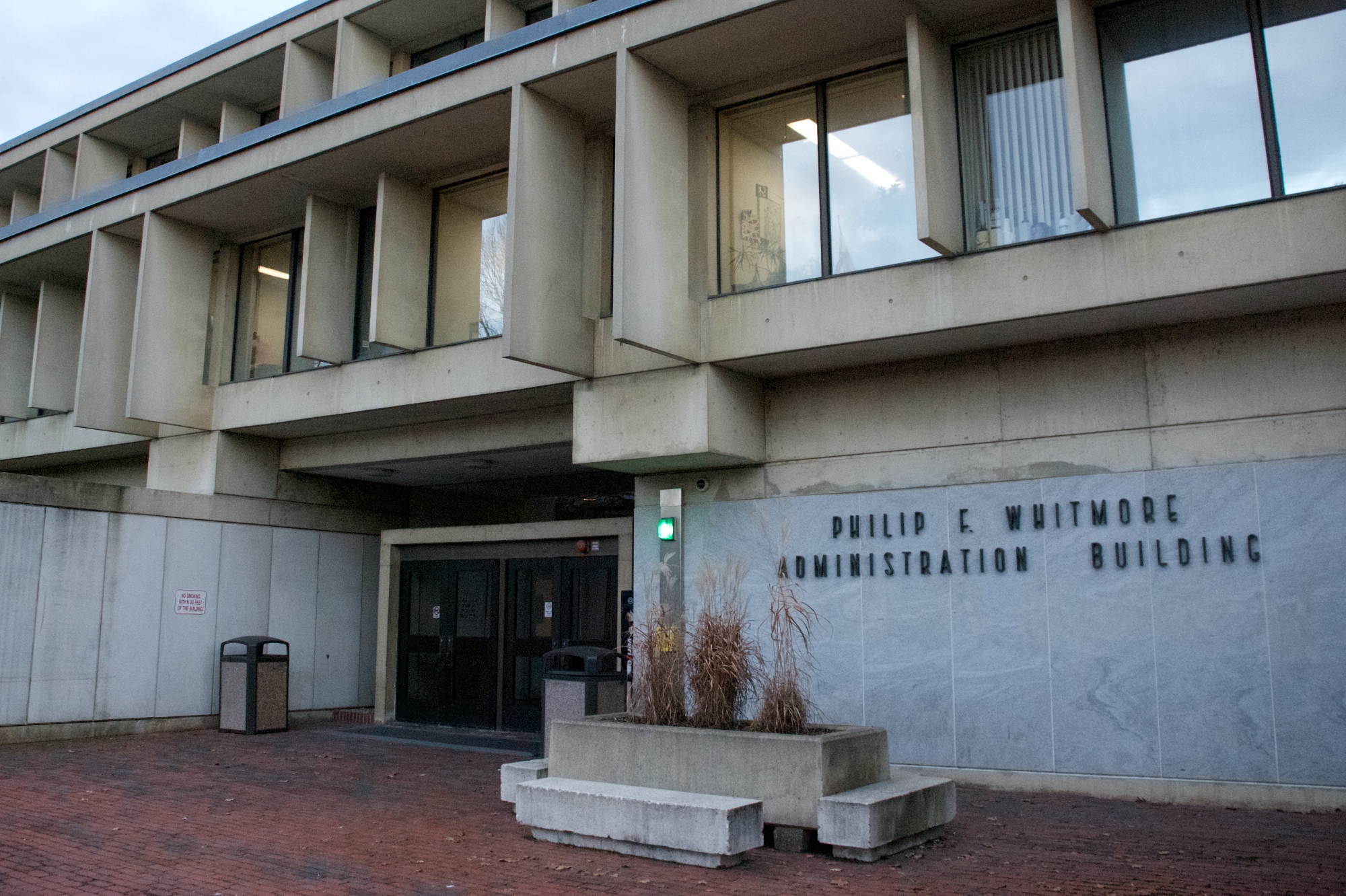 Collegian file photo
Collegian file photo‘
‘
Some faculty members at the
Beginning in March, notices of non-reappointment were sent out to 60 non-tenure-track faculty members. The majority of these faculty members are lecturers ‘- 37 are part-time and 23 are full-time faculty.
Currently, 91 faculty members have received notices of non-reappointment; the other 31 were notified this past December.
According to University spokesman Ed Blaguszewski, administration currently has no way of knowing whether or not these faculty members will be laid off officially. However, because these non-tenured faculty members are contracted to the University, depending on their seniority, each member needs notification by a certain date in the prior year.
If the administration failed to send out warning notices by the specific dates within the faculty members’ contracts, then the administration would not be able to lay them off in order to regain some financial stability.
‘[The notifications] are really providing the University with some flexibility,’ said Blaguszewski. ‘We do not know if lay-offs will actually have to occur. The unknown question is how much of a budget gap will there be, and once that occurs we can see how that correlates with budget reductions in the workforce.’
Administration cannot determine exactly how much of a budget gap it will need to close, because they are still waiting on the state’s decision to allocate federal stimulus money.
As a result, administration cannot determine who, of the 91 faculty members to receive notification of non-reappointment, will actually lose their jobs at UMass.
‘I don’t know whether the faculty members were expecting the notification, but common sense would tell them, I believe, that the campus was going to send out these letters,’ said Chancellor Robert Holub. ‘We hope to hire many of them back if we receive adequate stimulus funding from the federal funds in the state stabilization part of the bill.’
‘We believe many of these faculty members will be teaching for us next year,’ said Holub. ‘Some might be hired back even if we had no hope of stimulus money.’ I believe that the market is extremely tight for positions in higher education, and that it will not be easy for anyone to find a position for next year.’
Blaguszewski said he does not believe there has been any consideration yet of who is most likely to be laid off. Some factors that will decide that may have to do with what departments need these professors, or the size of the class that each professor lectures.
The notices come as another blow to the
Based on the costs of professors in 2004, the
In an online explanation of the plan, UMass administration stated the
As of 2007, after hiring 150 new tenure and tenure track faculty members with state appropriation money, UMass administration had believed the University would reach its 250 quota of new faculty within the five years it had predicted.
Back in 2005, administration felt the campus could hire about 80-85 faculty per year to restore the number of tenured faculty. It predicted costs would equate to at least $10 million dollars per year for three years, and that so long as inflation and other costs did not rise dramatically, UMass would be able to recruit new faculty effectively over this period and restore the faculty to appropriate levels within its five-year plan.
On Feb. 26, Chancellor Holub sent out a broadcast e-mail to students that explained that the current budget situation may force UMass to cut 50 faculty positions, 30 lecturers and 150 teaching assistants.
Holub hopes that receiving stimulus money in addition to other avenues of raising capital or cutting costs will allow UMass to function normally and continue to expand as quickly as possible.
‘The budget consists of many parts.’ It is extremely unlikely that state allocations will improve this year over last year because of the tax revenues in the state,’ said Holub.’ ‘Forecasts indicate next year will bring little relief.’ After that it’s anyone’s guess at present.’ I believe we will receive federal stimulus funds. These funds are one-time monies given to us for a two-year period.’ We do not know the amount we will receive and probably will not know exactly until some time in April.’
According to Holub, UMass administration may have to wait until after April to hear a definitive answer from the state.’
‘We continue to lobby for an increase in state allocations,’ said Holub. ‘Just this past Monday I was present at a meeting of the Ways and Means Committee, where President Wilson addressed our budget.’ I will be traveling to
Other than anticipating gaining federal stimulus funds, the UMass Board of Trustees voted and approved a $1,500 fee increase for in-state undergraduate students on Feb. 27. According to Blaguszewski, the fee increase will cover roughly $20 million of the $46 million expected budget gap.
‘For undergraduate students, there are provisions to minimize the impact of the proposed fee increase ‘- particularly for our students with the greatest financial need,’ said Chancellor Holub in a letter to UMass students on Feb. 25, ‘The proposed fee increase of $1,500 a year is coupled with a new and enhanced package of financial aid. It will produce new financial aid funding of about $7 million ‘- with roughly a third of the money raised by the fee going directly back to students.’
Another $6 million savings will be coming from other sources including the reorganization of the Provost Office that began this year, according to Blaguszewski. Administrative staff will be reduced, and some of those removed from the Provost Office will be reassigned back to other faculty positions. A limited hiring freeze has also been put into place ‘- as faculty members retire, the university will save money by not finding a replacement. ‘
Alyssa Creamer can be reached at [email protected].
‘






